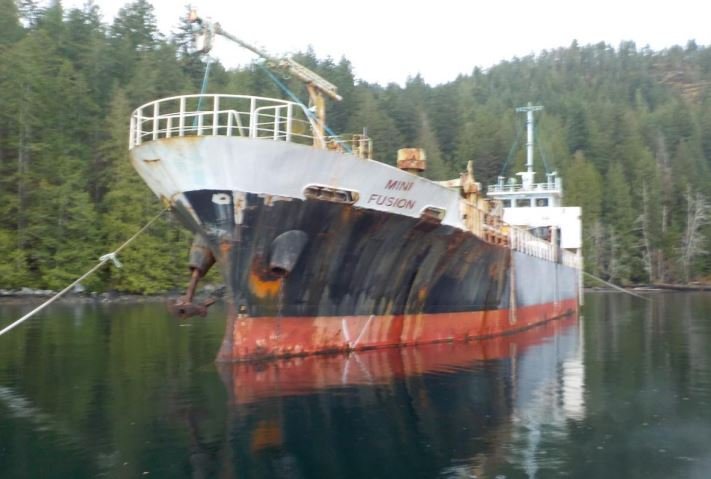
The Canadian Coast Guard says it has removed a large, hazardous vessel from BC waters and it’s currently being deconstructed so it is no longer a threat to the marine environment.
The Motor Vessel (MV) Mini Fusion, a 56 metre cargo ship, previously abandoned and anchored Desolation Sound has been removed and is currently being deconstructed by Marine Recycling Corporation following a competitive bid process.
The contract requires that the work to be carried out in an environmentally compliant manner, including salvaging of appropriate materials and recycling of scrap metal, ensuring strict controls on the disposal of hazardous waste, and closely managing the health and safety of those working on the project.
In 2021, the Canadian Coast Guard removed hazardous substances from the vessel to protect the surrounding waters from the risk of pollution, including removing 32,000 litres of fuel, oil and oily waste water. Despite this work, the vessel was assessed as a hazard by the Canadian Coast Guard and it was deemed that deconstruction of the vessel was required to fully mitigate the hazard it presented to the marine environment.
In July 2022, the MV Mini Fusion was transported from Doctor Bay to Duncan Bay near Campbell River for deconstruction. To minimize the risk to the environment, the MV Mini Fusion was placed on a submersible drydock. The Canadian Coast Guard maintained an on-water presence to monitor the disposition of the vessel during the transit of the MV Mini Fusion to Duncan Bay.
MV Mini Fusion was constructed in 1990 in Japan as a general cargo ship. It was 346 gross tons and 185 feet in length. It was previously known as the MV Ocean Lady and was employed by the Liberation Tigers of Tamil Eelam (LTTE) to transport 76 Tamil migrants to British Columbia in 2009.





